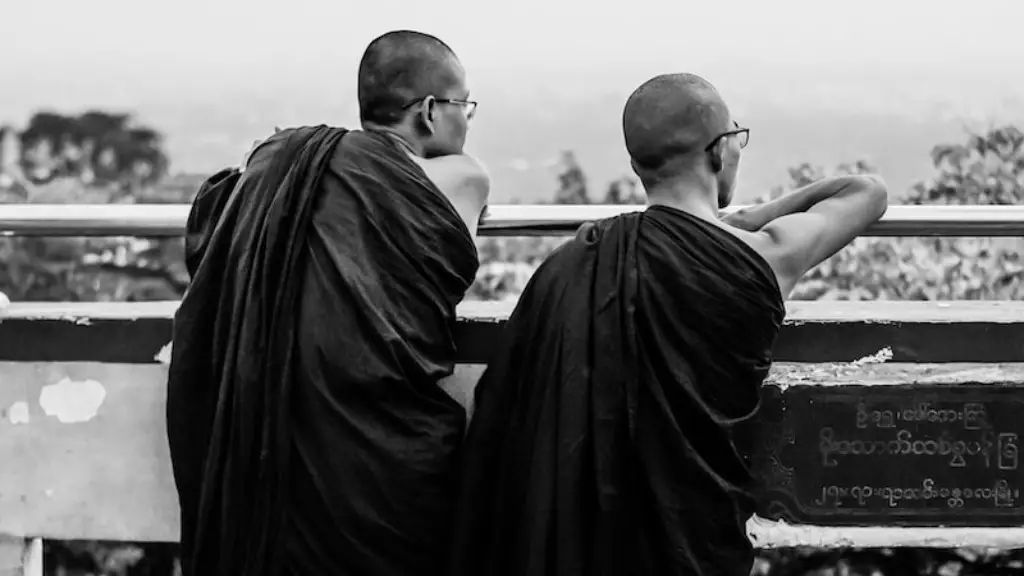Buddhism is a religion that was founded by Siddhartha Gautama in the 5th century BCE. Siddhartha Gautama was born into a wealthy family in what is now Nepal. He grew up sheltered from the outside world and had everything he could ever want. But Siddhartha was not satisfied. He left his home and family to search for a way to end suffering. After years of study and meditation, Siddhartha achieved enlightenment and became the Buddha.
Buddhism spread throughout Asia, and today there are over 500 million Buddhists in the world. While Buddhism is a religion, it is also a way of life. Buddhists follow the Buddha’s teachings, or dharma, in order to end suffering and achieve nirvana. The Buddha’s teachings are based on the Four Noble Truths and the Eightfold Path.
Buddhism has had a significant impact on Asian culture. Buddhist art, literature, and architecture can be found throughout Asia. In addition, the Buddhist concept of karma has influenced how many Asians view life and death.
Buddhism is not a culture, but a religion.
Is Buddhism a religion or culture?
Buddhism is a religion that teaches that the human life is one of suffering and that enlightenment can be achieved through meditation, spiritual and physical labor, and good behavior. Buddhism has its origins in India and is one of the largest religions in the world.
The largest Buddhist populations outside of China are found in Southeast Asian countries like Thailand, Burma (Myanmar), Cambodia, and Vietnam. Japan also has a large Buddhist population, as do countries like Sri Lanka, India, and Malaysia. In fact, seven countries have Buddhist majorities: Cambodia, Thailand, Burma (Myanmar), Bhutan, Sri Lanka, Laos, and Mongolia.
Is Buddhism Chinese culture
Buddhism was the third major belief system of ancient China. It was founded by Siddhartha Gautama, also called the Buddha, who lived in India around the sixth century BCE. Buddhism is a philosophy that focuses on personal development and attainment of deep knowledge. The main goal of Buddhism is to achieve Nirvana, which is a state of complete peace and freedom from suffering. Buddhists believe that all beings have the potential to achieve Nirvana, and that it can be attained through ethical living and meditation.
Buddhists believe that through the practice of meditation, one can reach Nirvana, the enlightened state free of suffering. In order to reach this state, it is important to live a life of right behaviours in all areas of life. The Buddha was the first to achieve Nirvana and is therefore an important figure in Buddhist teachings.
What type of religion is Buddhism classified as?
Buddhism is a non-theistic religion (no belief in a creator god), also considered a philosophy and a moral discipline, originating in India in the 6th and 5th centuries BCE. It was founded by the sage Siddhartha Gautama (the Buddha l c 563 – c 483 BCE) who, according to legend, had been a Hindu prince.
Buddhism is an Indian religion or philosophy that was founded by the Buddha (“the Awakened One”) in the 6th or 5th century BCE. Followers of Buddhism, called Buddhists in English, referred to themselves as Sakyan-s or Sakyabhiksu in ancient India.
Buddhism is based on the Four Noble Truths, which are that suffering exists, that suffering has a cause, that suffering can be ended, and that there is a path to the end of suffering. Buddhism teaches that the way to end suffering is through the Eightfold Path, which includes right understanding, right thought, right speech, right action, right livelihood, right effort, right mindfulness, and right concentration.
Buddhism has a variety of schools and traditions, and there is no one single way of practicing Buddhism. However, all Buddhists aim to follow the Eightfold Path and to end suffering.
Do Buddhists believe in God?
While Buddhism is often considered a religion, it is important to note that it is not a theistic religion. The Buddha himself rejected the idea of a creator god, and Buddhist philosophers have even argued that belief in an eternal god is nothing but a distraction for humans seeking enlightenment. This does not mean, however, that Buddhism is antithetical to religion. Rather, Buddhism provides a path to spiritual liberation that is focused on individual effort and practice.
Buddhists believe that people should try to end suffering; all things should be seen as having no self or essential nature. The main Buddhist values are love, wisdom, goodness, calmness and self-control. Buddhists strive to uphold these values in their everyday lives and to help others do the same.
How does Buddhism affect culture
Buddhism is one of the oldest religion of the world which started from India. It has impacted India and its culture greatly. It has promoted egalitarianism and non-violence along with free will. Even though it has vanished from India, it has impacted the mindset of people as well as intellectual, artistic, literary, and architectural fields.
There are two main types of Buddhism prevalent in Asia- Theravada Buddhism and Mahayana Buddhism. Theravada Buddhism is predominant in Sri Lanka, Burma, Thailand, Cambodia and Laos while Mahayana Buddhism is the main religion in Tibet, Mongolia, Taiwan, Korea, Vietnam and Japan. Both these forms of Buddhism are also prevalent in China, Malaysia, Singapore and Nepal.
What is the oldest religion?
Sanātana Dharma is a central concept in Hinduism, and refers to its eternal truths and teachings. Dharma is often translated as “religion” or “spiritual law”, but its primary meaning is “duty” or “rightful conduct”. Sanātana Dharma is often referred to as Hinduism, although this is not an accurate or complete description of the religion. Hinduism is a complex and diverse tradition with many different schools of thought and practice, and no single founder or scripture.Sanātana Dharma is not a centrally organized religion, and there is no one leader or authoritative figure. It is a collection of many different ideas and beliefs, and its practice varies widely from place to place and person to person.Sanātana Dharma also has no formal creed or set of beliefs, and Hindus are free to believe whatever they wish. There are, however, some core beliefs and practices that are shared by most Hindus. These include the beliefs in karma (the law of cause and effect), dharma (rightful living), and samsara (rebirth). Hindus also believe in the authority of the Vedas (sacred texts) and the importance of performing one’s duties in life (dharma).Sanātana Dharma is
Zoroastrianism is one of the oldest religions in the world, with a history dating back to the late second millennium BCE. The religion is thought to have originated in ancient Persia, and its teachings are older than those of Buddhism, Judaism, and Christianity. Zoroastrianism is a monotheistic faith that revolves around the worship of a single god, Ahura Mazda. followers of the religion believe in the importance of leading a good life, and doing good deeds in order to ensure a good afterlife. The religion also has a strong focus on environmental protection, and on treating all living beings with kindness and respect.
What is a Buddhist Bible called
The Pali canon is the complete canon, first recorded in Pali, of the Theravada (“Way of the Elders”) branch of Buddhism. The canon consists of three baskets (Tipitaka in Pali, Tripitaka in Sanskrit): the Vinaya Pitaka (Basket of Discipline), the Sutta Pitaka (Basket of Discourse), and the Abhidhamma Pitaka (Basket of Special Doctrine).
Buddhism is an ancient religion with its origins in India. The central figure of Buddhism is Gautama Buddha, who is also known as the “Awakened One”. According to Buddhist belief, there were other Buddhas who came before him. The teachings of Buddhism focus on reaching enlightenment and Nirvana, which is a state of complete peace and liberation.
What is the culture of Hinduism?
Hinduism is a religion that is based on love and respect for others. The Hindu culture revolves around these two values. For example, respect for elders is a foundation of Hindu culture.
Buddhism first originated in India in the 6th century BC. It is a non-theistic religion, ie it doesn’t believe in a creator God, unlike theistic religions such as Christianity. Buddhism was founded by Siddhartha Gautama (also known as Buddha) who, according to legend, was once a Hindu prince.
Conclusion
There is no easy answer to this question as it depends on how you define “culture.” If you consider culture to be the totality of a group’s way of life, then it could be argued that Buddhism is a culture. This is because Buddhism encompasses not only religious beliefs and practices, but also ethical principles, ways of thinking, ways of living, and artistic traditions. On the other hand, if you define culture more narrowly as a group’s shared customs and beliefs, then it could be argued that Buddhism is not a culture. This is because, although Buddhism is a religion with a shared set of beliefs, it is not limited to any one culture or region.
From the information presented, it can be seen that Buddhism is much more than just a religion. It is a complex system of beliefs and practices that has been developed over thousands of years. While it is true that Buddhism has been influenced by other cultures, it is also clear that it has its own unique culture and traditions. In conclusion, it is fair to say that Buddhism is a culture in its own right.



